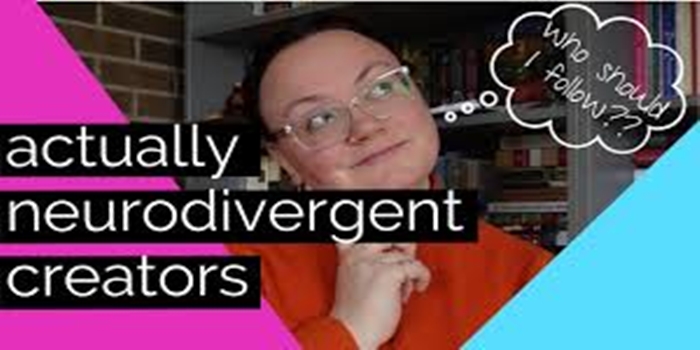In this article, we explained the meaning of neurodivergent creator, the features, the examples and we also talked about the benefits.
Definition
Neurodivergent creators are individuals whose creative output reflects the unique way their brains process information and engage with the world, often diverging from what is considered “typical”. This may encompass a range of experiences, including those with conditions like autism, ADHD, or learning differences, as well as those whose brains function differently without a specific diagnosis.
Neurodivergent Creators:
Neurodivergent creators are individuals whose creative processes and outputs are shaped by their unique cognitive styles and experiences. This may manifest in various ways, including:
Unique perspectives: Neurodivergent creators often bring fresh and unconventional perspectives to their work, challenging traditional norms and approaches.
Hyperfocus and detail: Some neurodivergent individuals possess exceptional focus and attention to detail, allowing them to explore complicated aspects of their work.
Pattern recognition: Neurodivergent individuals may excel at identifying patterns and connections that others miss, leading to innovative and insightful creations.
Emotional expression: Neurodivergent creators may express their emotions in unique and unconventional ways, often leading to powerful and deeply personal art.
The Features of Neurodivergent creators:
- Creativity and Imagination:
Neurodivergent individuals often have a unique perspective on the world, which can lead to groundbreaking ideas and innovative solutions.
Their ability to think outside the box and envision new possibilities can be a significant asset in creative fields like art, writing, and design.
- Attention to Detail and Pattern Recognition:
Many neurodivergent individuals, particularly those with autism or dys lexia, have a heightened sense of detail and an ability to identify patterns that others might miss.
This can be particularly useful in fields that require precision and analytical thinking, such as coding, data analysis, or scientific research.
- Problem-Solving Abilities:
Neurodivergent individuals may approach problems from unconventional angles, leading to creative and unexpected solutions.
Their diverse cognitive styles can help them identify weaknesses in existing systems and develop innovative ways to address challenges.
- Focus and Productivity:
Some neurodivergent individuals can experience intense focus on tasks they find engaging, leading to high levels of productivity.
This trait can be particularly beneficial in fields where deep concentration and sustained effort are required, such as programming, writing, or research.
- Innovative Thinking:
Neurodivergent individuals may have a natural inclination to question norms and explore new methods, which can drive innovation within teams and organizations.
Their willingness to challenge the status quo and embrace unconventional approaches can lead to breakthroughs and new perspectives.
The Benefits of Neurodivergent creators:
- Enhanced Creativity and Innovation:
Neurodivergent individuals often have a different way of thinking and problem-solving, which can lead to creative and innovative solutions.
They may be able to see patterns and connections that others miss, leading to new ideas and artistic breakthroughs.
Their unique perspectives can challenge conventional thinking and encourage a more diverse range of creative expressions.
- Unique Strengths and Skills:
Attention to Detail:
Many neurodivergent individuals excel at focusing on minute details, which can be beneficial in fields like graphic design, coding, or visual arts.
Pattern Recognition:
They may have a natural talent for identifying patterns and connections, which can be helpful in fields like data analysis, music composition, or visual arts.
Hyperfocus:
Some neurodivergent individuals can experience hyperfocus, which allows them to become deeply immersed in a task and complete it with great precision and speed.
Logical Reasoning and Problem-Solving:
They may possess strong logical reasoning skills and be adept at solving complex problems, which can be valuable in fields like software development or scientific research.
- Wider Perspective and Inclusive Creativity:
Neurodivergent creators can offer a wider range of perspectives and experiences to the creative field, which can lead to more inclusive and accessible art and products.
Their unique backgrounds and experiences can help them create art that resonates with diverse audiences and challenges societal norms.
By embracing neurodiversity, creative fields can become more inclusive and welcoming for all, regardless of their neurological differences.
- Enhanced Problem-Solving and Innovation:
Neurodivergent individuals may approach problems in unconventional ways, leading to innovative solutions and breakthroughs.
Their unique cognitive abilities can help them identify problems that others may have missed and develop creative solutions.
By fostering a neurodiverse environment, organizations can harness the collective intelligence of their workforce and increase their ability to solve complex.
Examples of Neurodivergent Creators:
Albert Einstein: Known for his theory of relativity, Einstein is believed to have had dyslexia and autism.
Bill Gates: The co-founder of Microsoft, Gates is thought to have ADHD.
Greta Thunberg: An environmental activist, Thunberg has been diagnosed with autism and OCD.
Andy Warhol: A prominent figure in pop art, Warhol was identified with dyslexia and autism.
Steve Jobs: The co-founder, chairman, and CEO of Apple, Jobs had dyslexia.
Richard Branson: Founder of the Virgin Group, Branson is neurodivergent with dyslexia and ADHD.
Emily Dickinson: A renowned American poet, Dickinson is theorized to have been on the autism spectrum.
Ellie Middleton: An autistic and ADHD activist, she is also the founder of the neurodivergent community Unmasked.
Connor DeWolfe: A neurodivergent actor with ADHD.
Jessica Kellgren-Fozard: A disabled and queer creator on YouTube who shares her experiences with ADHD.
Chloé Hayden: A singer and actor using social media to raise awareness about autism.
Conclusion
Neurodivergent creators possess unique strengths that can significantly enhance creativity, problem-solving, and innovation. By embracing neurodiversity, societies can foster more inclusive and diverse environments, ultimately benefiting everyone. Neurodivergent individuals often think differently and can approach problems from unique angles, leading to innovative solutions.
READ: The Power of Storytelling in Content Creation.


